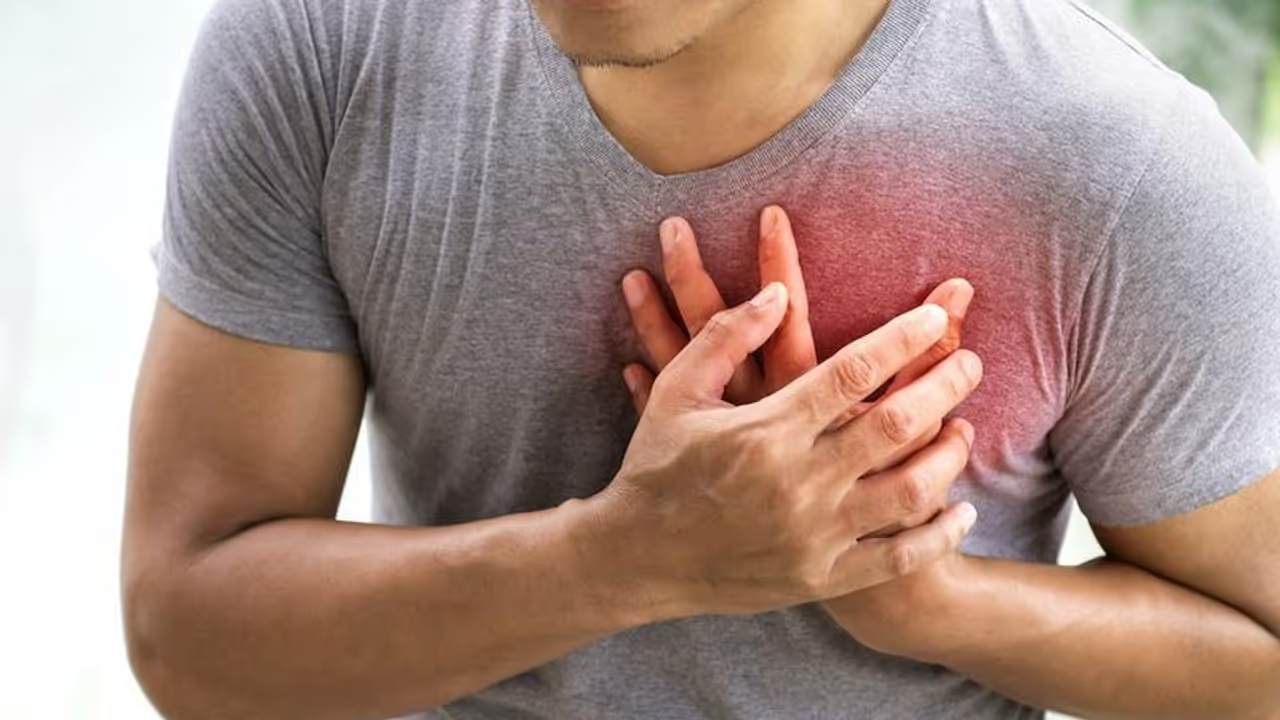According to the Centers for Disease Control and Prevention, a heart attack, also known as a myocardial infarction, occurs when a portion of the heart muscle does not receive enough blood.

Raju Srivastava, 58, experienced a heart attack (Myocardial Infarction) while working out at the gym. His health deteriorated after feeling severe chest pain and then collapsed. According to his brother and publicist, the actor had a heart attack.
Raju was immediately taken to AIIMS hospital, where he is getting treatment. According to reports, Raju was brought to the hospital by his trainer and was given CPR twice to resuscitate his heart. Heart attacks in adults aged 40-50, and even younger have increased dramatically.
We spoke to Dr. Naveen Chandra, Consultant - Interventional Cardiology, Manipal Hospital Varthur Road, who gave us some insides.
"Heart attack can occur because of any activity; any exertion can increase the risk of a heart attack. In spite of the best care you can still have such episodes in the future. It is not a contraindication for people to not exercise. Moderate-intensity exercise is good for the heart. It has to be a very structured plan whenever you want to go for a high-intensity workout. You cannot suddenly go and start a high-intensity exercise. You need to get a baseline heart check-up done if you have risk factors. You have to look for symptoms. When you go for a high-intensity workout, you need to go slow and accelerate higher. For cardiovascular benefit, moderate intensity exercise like a brisk, walking 30 to 45 minutes a day, 4 to 5 times in a week is more than sufficient.
We are seeing heart attacks a decade earlier than we used to see before. In the last few months, we have seen a lot of young patients in their 30s and 40s having a heart attack. This may be because of lifestyle and changes in the epidemiology of risk factors like stress. One of the most vital risk factors for myocardial infarction is genetics. Suppose they have a family history of anyone getting heart attacks between 40 to 50 years. In that case, it may be parents, cousins, uncles, first-degree or second-degree relatives then the risk of a person having a heart attack is higher. It may be transmitted due to cholesterol or any other genetic factors. Such people must be much more careful and must get regular checkups done so that they don’t miss out on any treatable causes.
Also Read | 4 tips to make the weekend special with your partner
What is Myocardial Infarction?
According to the Centers for Disease Control and Prevention, a heart attack, also known as a myocardial infarction, occurs when a portion of the heart muscle does not receive enough blood.
What leads to a heart attack?
The longer it goes without treatment to restore blood flow, the more damage is done to the heart muscle. These muscles are in charge of keeping the heart beating and the blood flowing.
The most common cause of a heart attack is coronary artery disease (CAD). A strong spasm, or abrupt constriction, of a coronary artery, which can cut off blood supply to the heart muscle, is a less common reason. This results in death or cardiac muscle injury.
Also Read: 5 TIPS THAT WILL PROTECT YOU FROM A HEART ATTACK
What are the symptoms of Myocardial Infarction?
- Pain or discomfort in the chest.
- Most heart attacks are characterised by discomfort in the centre or left side of the chest that lasts more than a few minutes or goes away and returns.
- The discomfort might manifest as pressure, squeezing, fullness, or pain.
- Feeling weak, dizzy, or faint. You might also break out in cold sweat.
- Jaw, neck, or back pain or discomfort
- Discomfort or pain in one or both arms or shoulders.
- Breathing difficulty.
This often comes with chest discomfort, but the shortness of breath can also occur before chest distress.
